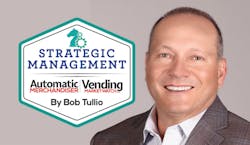People often ask me, “Don’t you miss being in business?”
What I really do miss: Showing appreciation to my clients and seeing the magic that occurs when this critical business function is done thoughtfully. In business, few things are more valuable and more enjoyable than entertaining clients or sponsoring their fun on behalf of your company.
Value and benefits should be obvious
Yet, I see so many businesses, large and small, that do not understand the value and benefits of showing appreciation to clients. Are they just frugal? Unmotivated? Lacking empathy? Maybe they are just a little too busy to step back and see that in addition to evolving a business relationship into something more personal, showing appreciation promotes client retention, account growth and, most importantly, referrals.
I know that some companies do not allow a vendor to spend a dime on their employees. Those rules must be respected and followed. In most cases, your clients are willing and able to accept a simple show of appreciation on your behalf — a business lunch or dinner — maybe tickets to a sporting event or concert.
Rules of Engagement
What could be easier than entertaining clients? Believe it or not, like everything else in business, things can go very right or very wrong! If you are an experienced “client schmoozer,” then you already know what I am talking about. For those who are new in the game of managing client relationships — I have seven rules (born from my own experience) about showing appreciation.
Rule 1: Be as generous as you can be
If your company is a little short on the entertainment budget, before you entertain a client, always ask the question: “If someone was giving this to me, would I appreciate it?”
For me, entertaining a client sometimes meant sitting down with them to enjoy a sub sandwich for lunch in their own breakroom. They loved it. Thirty years ago, our first Dodgers tickets were up on the reserved level “just outside of third base,” but when we treated a family of four to a game or took a client to a game, we never heard a complaint about the seats. Do whatever you can afford to do, but most importantly — do something.
Rule 2: Check, double-check and communicate
There is a tendency today in business toward sloppy communication, via text and email. When you are entertaining a client, an error can be disastrous.
A few years ago, I invited some out-of-town clients to dinner and an NBA game at Staples Center in Los Angeles. I inadvertently gave the address as East Olympic instead of West Olympic, which put them on the wrong side of the city. They were an hour late and were nice enough about it (after a couple cocktails), but I felt terrible and I’m sure they hated the extra hour in the car.
A few tips to avoid trouble:
- Send a calendar invite.
- Use a “fresh” subject title in your emails. In other words, if a prior email had the title “Backorder," don’t send your lunch invitation using that subject — or you may be sitting alone at lunch.
- Verify the hours of the restaurant.
- Confirm your reservation.
- Get there early and hand pick your table.
- Double-check everything!
Rule 3: Be prepared — do your research
I had invited Sandi to lunch for years and she finally accepted. She was the office manager of a large advertising agency — a great account. At lunch, she absolutely had nothing to say other than yes or no. I had never experienced anything like it, but my journalism training kicked in and I somehow managed to avoid one hour of uncomfortably “dead airtime” by engaging her in a non-stop interview and narrative.
Thanks to LinkedIn and the internet, there is plenty of information out there about people to better prepare you for a “Sandi,” who has nothing to say. In fact, I make it a practice to have at least five conversational directions to talk about during a lunch or dinner meeting. Asking the client questions about their life, career, family, aspirations, dreams and hobbies always works. People love to talk about themselves.
Rule 4: Express appreciation
When the lunch, dinner or evening has come to an end and the client says, “Thanks for a great time,” be sure to verbally express your appreciation for their business. “It was my pleasure. I just want you to know how much we appreciate your business and the relationship.”
Mission accomplished.
Is it wrong to have an agenda? It depends on the relationship. Sometimes, the client will want to talk business. If that doesn’t happen, I think you are better off asking for “a short meeting next week to go over a couple of items related to your account.” Or — after lunch, “Can we sit down for a few minutes to go over your account?”
Rule 5: Don’t stop
Your best clients need to be entertained on a regular basis. If a major client loves a specific sushi bar for lunch, make it a quarterly event. If you take a group of executives and their spouses out every year for the holiday season, make sure it happens every year. If a facility manager loves to see his beloved Pittsburgh Pirates when they come to town, make sure he gets a set of those tickets every year.
Make your show of appreciation part of the routine of doing business with your company. As this pleasant routine develops, never stop asking for referrals and always look for opportunities to build up the account in ways that will make your contact look great.
Rule 6: Remember the secondary contacts
While there might be only one decision maker at a company, don’t ignore the secondary contacts at a big account. Someday, one of those second-in-command players may be the new decision maker, so it is a good idea to look ahead and show some appreciation to the second tier.
If a company has a large facilities team, bring in a catered lunch for the team once a year to let them know how much you appreciate all that they do. This is not only an insurance policy for the future, but your support of the facilities team usually results in better performance of your refreshment program.
Rule 7: Turn the tables on your suppliers
Your suppliers are critically important to the success of your business. In addition to delivering the products you need, going to bat for you with manufacturer issues, delivering rebate checks, setting your product cost, sourcing new products, providing technical support and keeping you in touch with current trends, they can also supply some leads and business opportunities that often come their way — usually by accident. Someone will get that new business lead — why not you?
Show some appreciation for suppliers. Take them out to lunch for a change. You will be amazed at how much it will strengthen your business relationship. People who are accustomed to giving and giving all of the time, will truly value being treated to a rare showing of generosity.
Show your appreciation — that is what relationship building is all about.
Since selling his business in January of 2017, Bob Tullio has been an active industry consultant at www.tullioB2B.com focused on content creation, strategic planning, sales training and business development. In addition to serving a growing client base, he has written over 50 columns and features, providing operators and others with an inside look at how he helped build a successful business from the ground up.
Website: www.tulliob2b.com
Phone: 818 261-1758
Email [email protected]
About the Author

Bob Tullio
Bob Tullio is a content specialist, speaker, sales trainer, consultant and contributing editor of Automatic Merchandiser and VendingMarketWatch.com. He advises entrepreneurs on how to build a successful business from the ground up. He specializes in helping suppliers connect with operators in the convenience services industry — coffee service, vending, micro markets and pantry service specifically. He can be reached at 818-261-1758 and [email protected]. Tullio welcomes your feedback.
Subscribe to Automatic Merchandiser’s new podcast, Vending & OCS Nation, which Tullio hosts. Each episode is designed to make your business more profitable.
